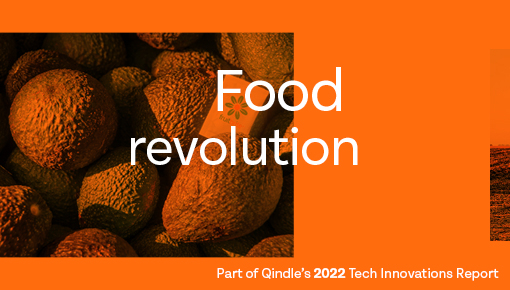Food From Thin Air: FoodTech trends for a healthier planet
Food is interwoven with so many dimensions of our lives – it’s personal, social and deeply cultural. However, it’s also well known that our food system is on a collision course with our planet, in part due to resource-intensive animal agriculture. Plant-based meat and dairy alternatives are flooding markets to serve a growing segment of ‘flexitarian’ consumers who, like me, are trying (and sometimes failing) to eat their way to a better world. What does the future hold for this foodtech trend? Will turning up to a barbecue with bean ‘sausages’ remain distinctly uncool, or become the norm?
The success of startups in this sector suggests the market for meat and dairy alternatives is growing rapidly, with no signs of slowing. Impossible Foods and Beyond Meat products are flying off the shelves: Burger King foot traffic spiked 17% upon launch of the Impossible Whopper in a set of test locations. Meanwhile, Swedish company Havre Global – the parent of popular plant milk brand Oatly – has just cut a deal with Starbucks coffee, and is reportedly eyeing a $10B valuation in its U.S. IPO. Globally, European consumers are leading demand, with North America in hot pursuit.
In coming years, we’ll see these startups develop innovative base ingredients for our food, potentially abandoning ‘plant-based’ materials to disconnect food production from agriculture altogether. For example, Finnish startup Solar Foods and U.S. company Air Protein use electricity to produce edible protein from carbon dioxide. Closer to today’s animal reality, lab-grown meats are another interesting prospect: though more sustainable, their use of animal stem cells will remain controversial for the near future. Dutch company Mosa Meat is leading in this space. The future won’t all be about startups, either – FMCG multinationals will make thoughtful acquisitions and R&D investments to gain credible share of this trend.
There will be bumps in the road, though. FoodTech companies offering plant-based alternatives need to drive down their cost base to be more price-competitive with their animal-based counterparts (though this will come with time, and scale). Second, despite having a long history in Asia, there are still mixed perceptions of mock meat in the region. Western companies entering the region will need to tailor their entry plans, campaigns and even products to suit the varying tastes of sub-regions across the continent. Finally, this market can expect continued resistance from traditional animal agricultural industries – but there is hope that consumer demand will prevail.
All consumer companies will be wise to review their product propositions to make sure they are prepared for the rise in conscious consumerism, in the realm of food and beyond. Incorporating more sustainable practices into society is the only way forward, and both companies and consumers must take responsibility for the shift. Is there scope for new, more sustainable product development? Or could this trend present an investment or acquisition opportunity? In the meantime, you’ll find me shelling out my life savings on imitation burgers – our planet is worth it.



